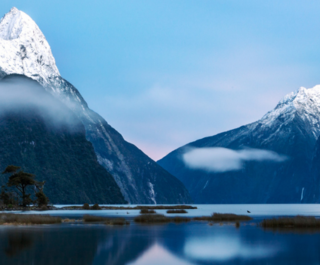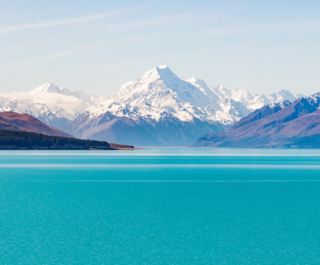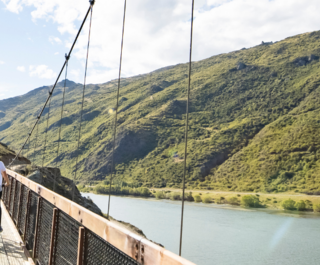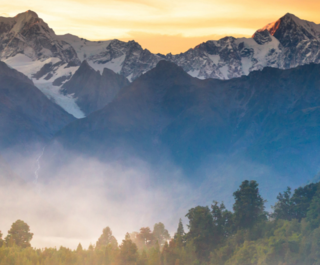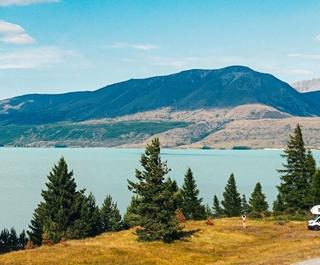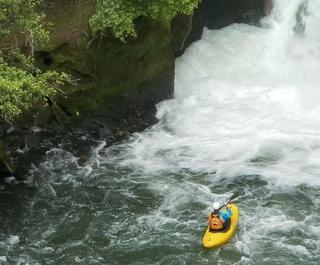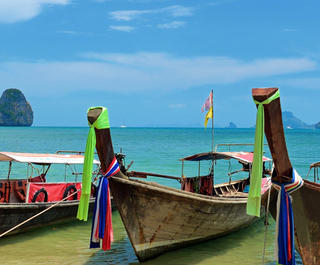
With little more than the hum of the road disturbing the peaceful silence of our van, our group of 11 trundled along the twisting roads through the lush Ruapehu region. Alpine forests spread out as far as the eye could see, with tall native trees piercing the wisps of low hanging clouds. The sporadic bouts of heavy rainfall didn't bode well for our journey, but still we continued en route to Ohakune to cycle Old Coach Road.
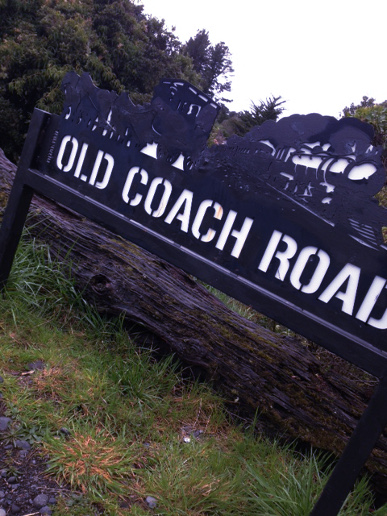 Old Coach Road was used regularly by horse drawn carriages through the early 1900s
Old Coach Road was used regularly by horse drawn carriages through the early 1900s As we neared our destination, the group's excitement was palpable. Rain or shine, everyone was jumping at the chance to get amongst the extraordinary natural beauty of this region. Skirting along the foot of Mount Ruapehu, the undulating landscape is lush with ancient beech and podocarp forests. For anyone that thrives in the outdoors, it's a dream destination secluded from the bustle of big city living yet peppered by charismatic towns that provide anything you could possibly need.
The rain had gotten worse by the time we arrived and our waiting guide questioned whether or not we would be up to braving the wet to experience the trail. I think he was taken aback by the sheer enthusiasm of the group – yes, we were sure we wanted to get out on that trail. "To the bikes!" we practically shouted with unwavering confidence.
We were kitted up with sturdy mountain bikes and helmets, and by the time we were piled in the van to head to the start of the trail at Horopito, the clouds were starting to part and the first shimmers of blue sky peeked through.
 Our group loved the surrounding landscape and natural beauty on full display (Image courtesy of Candice Bailey)
Our group loved the surrounding landscape and natural beauty on full display (Image courtesy of Candice Bailey)Tracing a snaking line through the Tongariro National Park, Old Coach Road is now part of the Mountains to Sea Cycle Trail. The 15-kilometre journey sees mountain bikers and hikers navigating the former road horse drawn coaches would have used in the 1900s to transport passengers between the railheads of the North Island trunk line before it was complete in 1909.
Looking for more North Island travel inspiration?
101 Things To Do In New Zealand's North Island
Soaking Up NZ's Dramatic North Island With Photographer Matt Glastonbury
6 Things To Pack For Light Adventure On New Zealand's North Island
After a quick safety and instructional briefing we set out. Some of us were a little shaky to start, going down the first hill of the trail, but we persevered. A slight downhill slope certainly wasn't going to dampen our spirits. The track starts off as gravel before quickly giving way to an unsealed dirt road through an expansive paddock. It's classed as Grade 2 and is suitable for most fitness levels. We were told the youngest to complete the journey was eight years old, making it a great option for families travelling through the North Island.
It doesn't take long before the paddock turns to forest and the old, once cobbled trail leads the way beneath the canopy. Aside from being extremely beautiful, there is ample opportunity to spot native flora and fauna here. Birdwatchers should keep their eyes peeled for falcons and pigeons in the treetops. There are interactive signboards along the trail that tell of the storied history of the road. They also happen to offer the perfect excuse to stop for a rest – a chance some of us jumped at from time to time, as the muddier-than-expected trail did take a little more skill and attention to navigate.
One of the most arresting sights along the journey are the remnants of the Taonui Railway Viaduct. Wet with rain, this rusted track gleamed red against the vibrant green forest, leading away from us in a gentle curve that slowly disappeared amid the surrounding trees. Still fresh, we excitedly snapped photos and looked on in awe of the now disserted track. I think our guide drew the line when the selfie stick came out; though, he did kindly pose for a group shot.
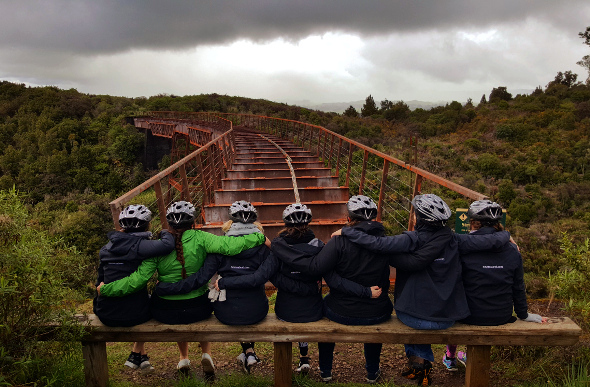 The Taonui Railway Viaduct is one of the coolest views along the trail (Image courtesy of Carla Wells)
The Taonui Railway Viaduct is one of the coolest views along the trail (Image courtesy of Carla Wells)Starting the trail from Horopito ensures a mostly level and downhill journey, but there are a couple of uphill sections. On a normal summer day, these wouldn't have posed a problem, though cycling in the rain did make the journey more challenging. By the time we reached the apex of the second incline we had been tested. We were wet and muddy. There were some breathless breaks on the way up, but our efforts were well rewarded with a carefully navigated decline that culminated in the old Hapuawhenua Viaduct.
Perhaps it was the prospect of walking out onto the tracks or maybe we just really needed a break, but we hopped off our bikes and ran out onto the tracks with childhood fascination. The curving steel lattice design was constructed in 1907 to cross the Hapuawhenua Valley. It was replaced by a new concrete version in 1987 and was classified as a Category 1 structure by the Historic Places Trust in 1995. Today, it is safe to walk along the still sturdy track to check out the amazing views over the surrounding valley and the new viaduct in the distance.
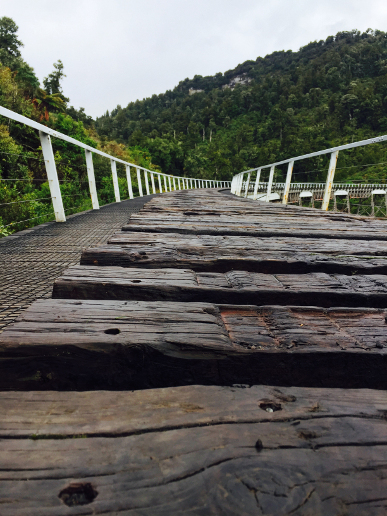 No longer in use, the old viaduct provides some amazing views over the surrounding valley (Image courtesy of Candice Bailey)
No longer in use, the old viaduct provides some amazing views over the surrounding valley (Image courtesy of Candice Bailey)Some of the group lingered here longer, walking around the bend of the tracks for better views. I hopped back on my bike and began the uphill slog back to the top of the trail. The end of this 15 kilometre journey was in sight. I wasn't going to stop for anything. I tore down the mountain, splashing and sloshing through the mud. I watched as those ahead of me stopped with appreciative "oohhs" and "aahhs" at the amazing view of the surrounding farmlands.
The sun had come out and was casting dappled rays through the clouds over the green rolling landscape below. To most it would have been the perfect photo opp, but as I cast a sideways glance at this natural splendour, it only spurred me on. It was the heavens opening up and shining a light on the finish line.
As I crossed the end of the trail, my legs burned from pushing up those inclines. My shoes and pants were crusted in mud. I was wet and dirty to say the least, but I made it. It didn't take long for the rest of the group to arrive, one by one and smiling widely at having completed the trail.
Though everyone was as splattered with mud as I was, our enthusiasm had returned tenfold. High fives were had all around and the excited chatter started as everyone gushed about how amazing the journey had been.
Please note the author was a guest of Tourism New Zealand



